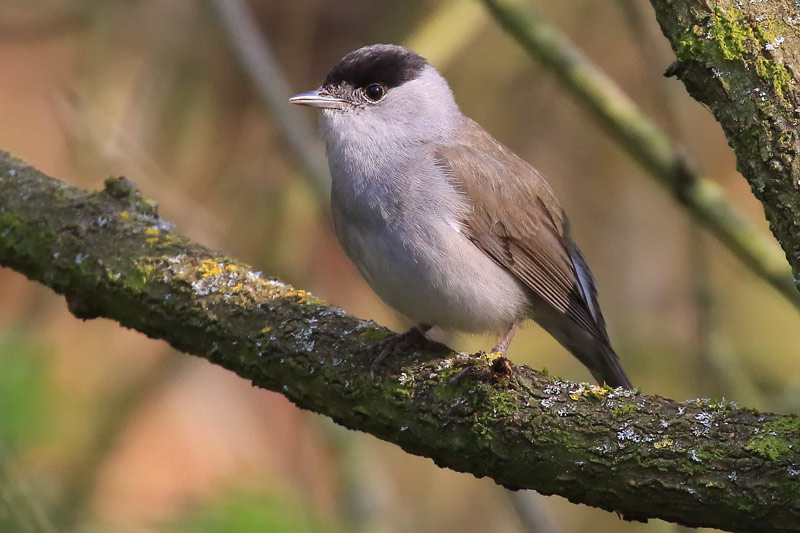Research shows Blackcaps migrate north and take advantage of garden bird feeders. British Trust for Ornithology (BTO) calls for more people to record their garden bird sightings.
Most of the birds that flock to our shores in winter are leaving behind inhospitable conditions in Scandinavia and eastern Europe, not the balmy climes of the Mediterranean. However, research now shows that many of the UK’s growing number of overwintering Blackcaps breed in just the sort of places chilly Brits might visit for a bit of winter sun. Scientists from the British Trust for Ornithology (BTO) want people to help them understand more about this surprising phenomenon.
Blackcaps are Robin-sized birds that historically migrated to the UK in spring from southern Europe and returned there after the breeding season. In recent years, more and more Blackcaps have been spending the winter in the UK, where they can often be found at garden feeders. These wintering birds represent a different population to our breeding Blackcaps, however, and migrate to the UK from a range of countries, from Spain in the west to Poland in the east.

Blackcap, copyright Glyn Sellors, from the surfbirds galleries
The discovery was made by scientists from the BTO, Oxford University and the Max Planck Institute in Munich. Over four years, volunteers fitted 600 Blackcaps wintering in the UK with unique colour combinations of easily-identified leg rings, allowing researchers to track sightings of the birds as they returned to their breeding grounds. An additional 30 Blackcaps were fitted with tiny tracking devices that gave more detailed information about the birds’ routes.
Although the reasons for this northwards migration are not well understood, other work by BTO scientists suggests that warmer winter weather in the UK and widespread garden bird feeding may be helping these birds to survive. Rob Jaques, BTO Garden BirdWatch Supporter Development Officer, said: ‘When these wintering Blackcaps first arrive in the UK, they feed in the wider countryside, only moving into gardens as the winter deepens. Our network of BTO Garden BirdWatchers – who keep a weekly record of the birds and other wildlife using their gardens – are well-placed to collect new information on these visiting birds, but we need to increase the number of gardens being covered, so that we can increase our understanding of this unexpected behaviour.’